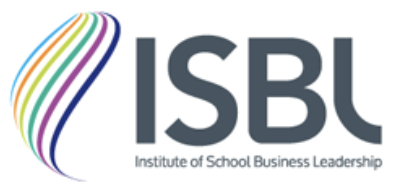
Associate Career Pathway
What is the career pathway for ASSOCIATE practitioners?
As an Associate practitioner, you are likely to:
be a practising School or Trust Business Manager, local business support in a trust, team leader within a central team, trust business support or specialist manager (e.g. Finance Manager, HR Manager)
work with an operational emphasis, with some increased role complexity
start to contribute to thinking about the approach to tasks and begin to analyse information that informs decision-making
be working with other colleagues including senior leaders to deliver the strategic plans and ensure the embedding and understanding of these plans within your team
be qualified to (or working towards) level 4 or above.
If you are not already a member of ISBL and feel that this is the right fit for you, then you can apply for Associate membership of ISBL, click here for more information.
As an Associate practitioner, there are many opportunities for you as a member of ISBL - you may want to further develop your knowledge and experience through taking advantage of networking or mentoring opportunities or else undertaking accredited training or qualifications to gain formal accreditation. A number of benefits and opportunities are set out below:
-
The first stage of ISBL membership is to undertake a self-assessment against the ISBL Professional Standards to verify that you are operating at Associate Practitioner level.
As a member, you have free access to the ISBL self-assessment tool, which allows you to carry out a diagnostic assessment of yourself and reflect on your areas of responsibility, experience and expertise across the various discipline areas of the ISBL Professional Standards.
On completion of the self-assessment, you will be provided with a report that summarises where you are currently in relation to each discipline area, identifies your overall practitioner level, and highlights professional development opportunities that you may want to consider to improve your knowledge, skills and experience within the relevant discipline area or to progress to a lead level. Further details of the self-assessment process can be found by clicking here.
This assessment should be carried out as a continual process and as a member of ISBL on at least an annual basis.
-
ISBL recognises that there are many forms of development not only achieved through training and qualifications; examples can be viewed in our CPD guidance.
As an associate practitioner, there are many opportunities that you can take advantage of as a member of ISBL to connect with ISBL, expert practitioners and other school business professionals. Some of these are identified below:
One-to-one professional development advice – If you would like personalised advice and guidance on your career development, then you can set up a meeting with our Director of Professional Development by emailing training@isbl.org.uk.
Mentoring opportunities – If you would like to be set up with a mentor to help you develop your leadership skills, then email training@isbl.org.uk.
Access to funded SBP programmes – Priority access to free and subsidised bursary funded programmes developed in consultation with key sector stakeholders including the DfE.
Accredited training – Member rates for contextualised accredited training are available across the discipline areas and delivered by subject matter experts.
Accredited qualifications – Relevant generalist, specialist and apprenticeship accredited qualifications are available for SBPs, at levels 4–5 at member rates.
Access to a repository of resources – Access the good practice library and member repository library.
Policy influence – ISBL acts as the conduit between policy and practice by testing government thinking with frontline practitioners.
Free attendance at ISBL regional events – Network with other local professionals and benefit from specialist training, advice and the latest guidance relevant to your local area. Click here for more information.
Member rates for the ISBL national conference – Attend our two-day showpiece event with training, expert advice and personalised workshops, including networking opportunities and our annual celebratory gala dinner. Click here for more information.
Professional support – Access to a member-only LinkedIn group where you can share best practice, ask questions and have professional discussions.
-
If you are an Associate or Full member of ISBL, then you can apply for formal Associate Practitioner Level Accreditation against the Professional Standards. For membership details and rates, please click here.
To do this, you will need to provide three pieces of evidence:
Your self-assessment report confirming that you operate at associate practitioner level.
A signed employer statement verifying that you work at an associate level.
Proof of relevant qualifications at level 4 or above.
On completion of this process, you will be accredited as an ISBL Associate Practitioner and will be sent a certificate and digital badge to confirm your status. For more information on the accreditation process, click here.
-
If you want to develop your leadership responsibilities within your role and progress towards Lead Practitioner level, you may want to consider developing your knowledge across the lead level descriptors of the Professional Standards. A good starting point to help you to improve your knowledge or progress to a higher level is to complete a Personal Development Plan (PDP) to identify 3–5 areas where you may wish to improve your knowledge and experience. You can download the ISBL PDP template by clicking here.
To develop your leadership knowledge and skills, you may also want to consider undertaking any of the following qualifications:
Level 5 CMI Diploma in Management and Leadership – Gain extensive understanding about how to become an effective and skilled manager and achieve professional recognition, taking you towards Chartered Manager status. More details can be found by clicking here.
Level 6 Chartered Manager Degree Apprenticeship (CMDA) – Develop job-specific skills that will benefit you and your school. Topics include HR, finance and procurement as well as risk management and marketing in schools. More details can be found by clicking here.
CIPD Level 5 Associate Diploma in People Management for School Business Professionals – Broaden your HR knowledge and extend your people management skills. Substantiate your experience and provide professional assurance with an accredited CIPD qualification. More details can be found by clicking here.
Additional accredited qualifications at level 5 or above can be viewed by clicking here.If you wish to view the Lead career pathway, you can do so by clicking here.

The people we support
Related Qualifications at Level 5/6
-
CMI Level 5 Diploma in Management and Leadership
Achieve professional recognition by proving your theoretical and practical skills and abilities with this CMI accredited qualification. By completing all units, you will gain extensive understanding about how to become an effective and skilled manager, taking you towards Chartered Manager status. A level 5 CMI qualification can help demonstrate your knowledge, skills and management ability to current and future employers, making you stand out from the crowd.
-
CMI Level 5 Certificate in Project Management
This qualification equips learners with the skills and knowledge to effectively manage projects, meet objectives and improve efficiencies. This course is ideal for practising or aspiring middle managers and leaders to adapt to these increasing expectations. A level 5 CMI qualification can help demonstrate your knowledge, skills and project management ability to current and future employers, making you stand out from the crowd.
-
CIPD Level 5 Associate Diploma in People Management for SBPs
This qualification is an ideal way to help broaden the knowledge and extend the HR and people management skills of school business professionals. The programme enables learners to maintain and develop the effectiveness and efficiency of the HR function in which they work, as well as underpin and develop their knowledge of key aspects of the role, allowing them to add value to the school or trust.






